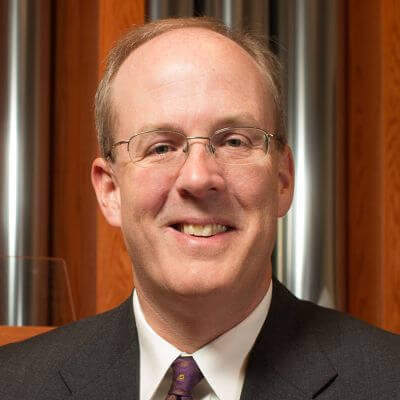Church Music Featured Courses
As a student in the church music major at Concordia Nebraska, you’ ll have the opportunity to take specialized courses related to various aspects of the church music profession. These classes, designed to equip you for leadership and service in various church music careers, are taught by some of our esteemed faculty who have extensive experience in their fields.
CHMU 221
Introduction to Church Music 2 credits
An introduction to the vocation of church musician. Topics include the philosophy of church music; the role of the church musician; working with children, youth, and adults; the church year and lectionary; ensemble directing; and professional organizations and resources. The course, which includes ten hours of fieldwork, is intended primarily for individuals preparing to be church musicians.
CHMU 313
Christian Hymnody 2 credits
A historical study of the hymns of western Christianity. Although those used by Lutherans will be a particular focus, the course includes hymns from all traditions. Prior experience in music is helpful, but not required.
CHMU 320
Church Choral Methods 2 credits
Methods of teaching choral music to children, youth, and adults in a church setting. The course is designed to help pre-professional church music students gain the necessary tools to be successful leading ensembles.
CHMU 390
Service Project in Church Music 1 credits
This course relates church music to community service in a way that fulfills the university’s service-learning component of general education. Students design, carry out, and assess projects under the direction of a faculty supervisor. Prerequisite: junior standing in the church music program and permission of instructor
CHMU 411
Christian Liturgy 3 credits
A history of Christian liturgy from earliest times to present with particular attention paid to Lutheran use. Includes a discussion of theological, textual, musical and cultural issues. Prior experience in music is not required.
CHMU 421
Church Music Administration 2 credits
How to administer a comprehensive church music program. Topics include church music philosophy, music planning, budgeting, congregational education, recruiting, working with church staff and other musicians, and current theological and pastoral issues in church music. The course, which includes ten hours of fieldwork, is intended primarily for church music majors.
MUAP 386
Service Playing II 1 credits
A continuation of Service Playing I, this course continues to develop skills in leadership of the congregation’s song in a variety of styles from the organ and piano.
Application is open!
Be a part of the next class of church musicians.
Apply Now
Church Music Sample Schedule of Courses
The following sample course of study is an example of the sequence of courses you might take in order to receive your degree. Please plan to discuss your actual course of study with your advisor, who can help you stay on track to meet your academic and professional goals.
Semester 1
MU 102
Aural Skills I 1 cr.
MU 103
Music Theory I 3 cr.
MUED 201
Introduction to Music Education 3 cr.
MUAP 272
Keyboard Skills 1 cr.
MUAP XX
Principal Instrument 1 cr.
GEN ED
General Education 6 cr.
15 Total Credits
Semester 2
MU 104
Aural Skills II 1 cr.
MU 105
Music Theory II 3 cr.
CHMU 221
Introduction to Church Music 2 cr.
MUAP 272
Keyboard Skills 1 cr.
MUAP XX
Principal Instrument 1 cr.
GEN ED
General Education 6 cr.
14 Total Credits
Semester 3
MU 202
Aural Skills III 1 cr.
MU 203
Music Theory III 3 cr.
MU 251
Conducting I 2 cr.
MU 211
Music History to 1750 3 cr.
MUAP 272
Keyboard Skills 1 cr.
MUAP XX
Principal Instrument 1 cr.
GEN ED
General Education 5 cr.
16 Total Credits
Semester 4
MU 204
Aural Skills IV 1 cr.
MU 205
Music Theory IV 3 cr.
MU 212
Music History since 1750 3 cr.
MU 253
Conducting II 2 cr.
MUAP XX
Principal Instrument 2 cr.
GEN ED
General Education 4 cr.
15 Total Credits
Semester 5
CHMU 313
Christian Hymnody 2 cr.
CHMU 325
Organ Literature and Design 2 cr.
CHMU 421
Church Music Administration 2 cr.
MUAP 385
Service Playing I 1 cr.
MUAP XX
Principal Instrument 2 cr.
GEN ED
General Education 7 cr.
16 Total Credits
Semester 6
MUAP 386
Service Playing II 1 cr.
MUAP XX
Principal Instrument 2 cr.
GEN ED
General Education 7 cr.
15 Total Credits
Semester 7
CHMU 320
Church Choral Methods 2 cr.
CHMU 390
Service Project in Church Music 1 cr.
CHMU 411
Christian Liturgy 3 cr.
MUAP XX
Principal Instrument 2 cr.
GEN ED
General Education 6 cr.
14 Total Credits
Semester 8
MU 493
Senior Project 1 cr.
MUAP XX
Principal Instrument 2 cr.
GEN ED
General Education 12 cr.
15 Total Credits
Additional courses required for the director of parish music certification
- Theo 241, 242, 243, or 244 : Biblical Interpretation (3 cr.)
- Theo 361 : Doctrine and Confessions I (3 cr.)
- Theo 362 : Doctrine and Confessions II (3 cr.)
For more information, see the Music Student Handbook.
Church Music Faculty
As experts in church music, our faculty and instructors bring years of experience to the classroom.
Meet the faculty





